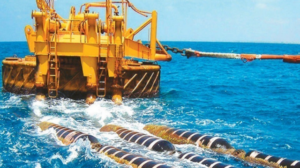At present, there is no information on the stance the Cypriot side will take, as the Cypriot press has been silent over the past 24 hours despite reported discussions between Cypriot President Nikos Christodoulides and the Greek Prime Minister Kyriakos Mitsotakis. The Prime Minister was in Cyprus last Saturday to commemorate the 50th anniversary of the coup and the Turkish invasion.
These two leaders are expected to provide final directives, with President Christodoulides recently expressing his support for the project in an interview with Kathimerini. He expressed optimism that the financial aspects would be resolved to allow for definitive decisions.
Manos Manousakis, the CEO of IPTO (Independent Power Transmission Operator), has spoken harshly about the project, stating he is determined to terminate it if the Cypriots do not agree to cost recovery—shifting some of the burden onto consumers—and support it from the start by modifying the regulatory framework. IPTO has estimated this cost at 25 million euros annually from early 2025 to 2030, totaling 150 million euros, with an annual user charge of 30 euros, which is considered small compared to the benefits for Cyprus.
A similar ultimatum was reportedly issued in the previous meeting by Brussels, warning that if Nicosia does not change its stance, it risks losing the EU funding for the project, amounting to 657 million euros.
The Cypriots, for their part, continue to analyze all aspects of their energy planning, aiming to ensure that the cable does not hinder their access to natural gas, which they need to reduce the high costs of diesel and oil they currently use. They also aim to secure their own renewable energy production.
Ask me anything
Explore related questions





